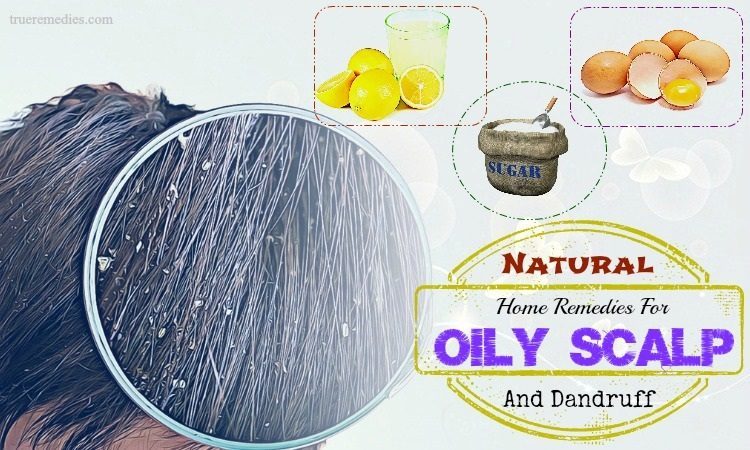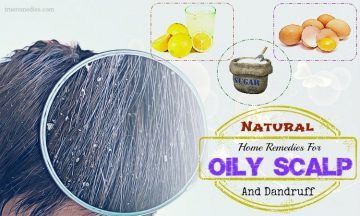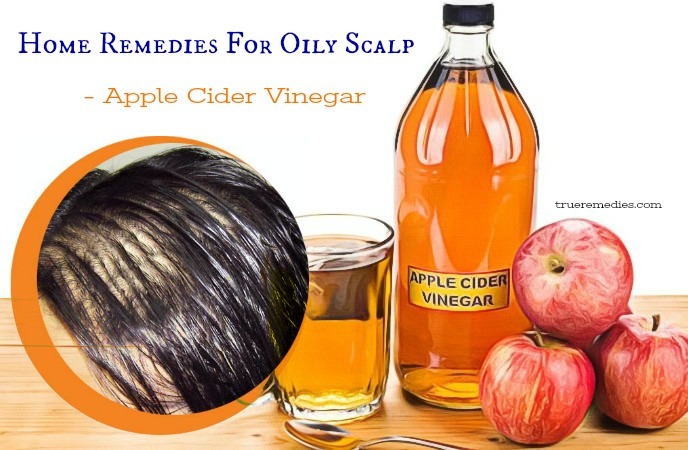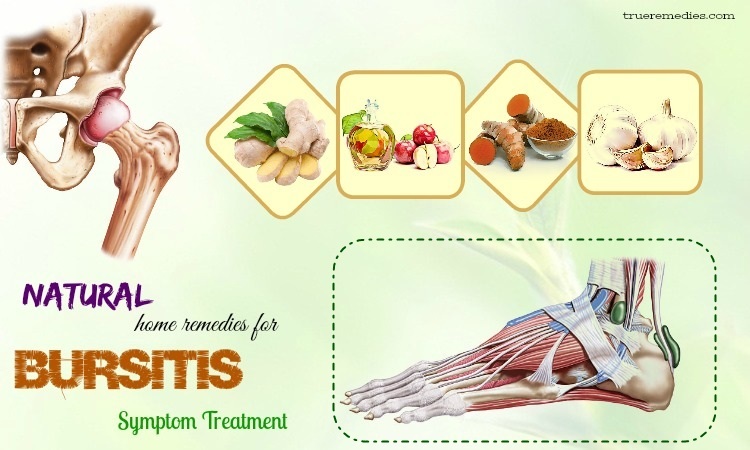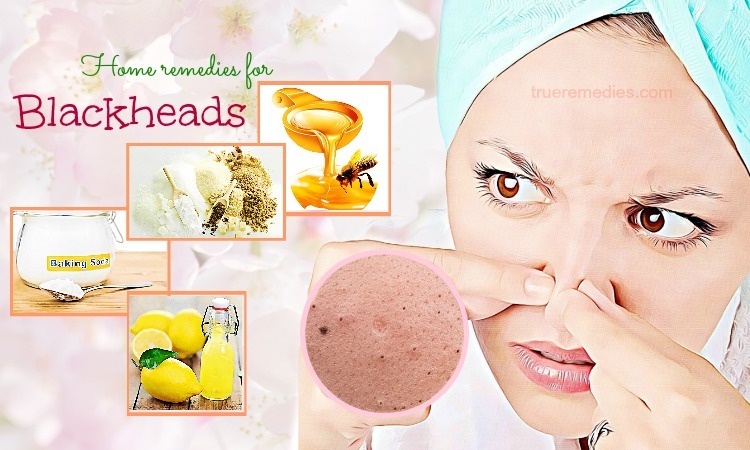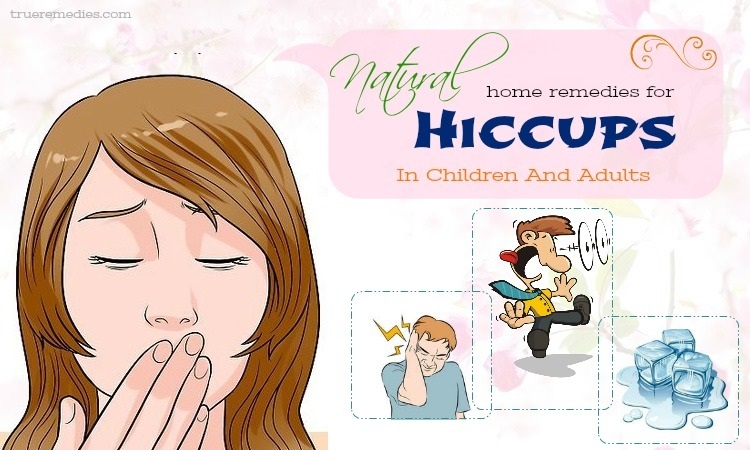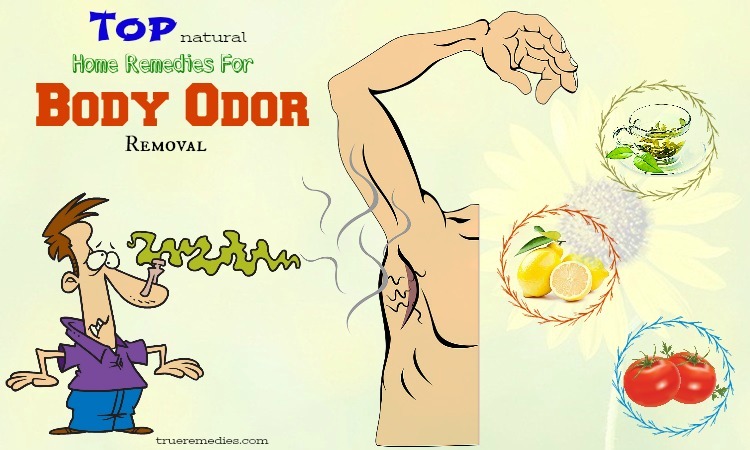updated: 11/23/2019
Contents
An oily scalp and dandruff are the most common hair and scalp problems in humans. The oily scalp makes your hair look like it is wet and causes your hair not to float. It is difficult to style hair for people with oily scalp, right? In fact, these things make people with oily scalp often feel uncomfortable and not confident. There are many causes of this condition. But whatever the cause, it’s still very important to treat it. To overcome this condition, many people come to the hair salon to recover their scalp and hair. This takes a lot of money and time. Meanwhile, with the natural home remedies for oily scalp, you can do it for yourself. It is time to find out what the best natural home remedies for this problem are.
- How to exfoliate scalp at home without damaging hair
- Home remedies for alopecia treatment on scalp
- Home remedies for scalp pimples
What Is Oily Scalp?
Many people use dandruff shampoo to reduce the problems caused by dry scalp, but a scalp that is too greasy may also cause its own problems. The oily scalp is the result of excess sebum and natural oils produced by the sebaceous glands of the skin. Oily scalp is a phenomenon in which the scalp has a lot of oil, causing the scalp to itch and irritate. In other words, oily scalp is a scalp that produces a lot of oil that makes your hair look like it is wet at all times. This problem is one of the causes of hair loss and dandruff associated with pathology.
Normally, the presence of sebum on the scalp provides a protective layer needed to keep the skin from losing moisture and drying out quickly. However, too much sebum in the hair follicles may cause your scalp and hair to become greasy and lead to dandruff outbreaks. In addition, Malassezia, a fungus commonly associated with the appearance of dandruff, may thrive in the oil-rich area of the scalp and further exacerbate the symptoms of dandruff[1].
The oily scalp usually affects men more than women. This is because male scalp secretes 50% more sebum than women’s scalp. For this reason, men are more susceptible to side effects of the scalp that are too greasy, such as dandruff, itchiness and oily hair. It is important for men to regularly use dandruff shampoo to remove dandruff and maintain the effectiveness of the natural protective barrier of the scalp. If your scalp continues to have too much oil and is greasy, you should consult your dermatologist.
Common Causes Of Oily Scalp?
Oily scalp is primarily caused due to the build-up of the natural secretion from the sebaceous glands in your scalp. Other causes of this problem include:
TrueRemedies Partner Solutions

Need a Help from the Leading Expert Online, Available 24/7?
They’re all here and ready to answer your questions online or by phone. Keep asking questions until you get the answer you need.
- The Physiological Secretions In Your Body Changes
During pregnancy or during menstruation, the physiology of women changes, leading to the scalp producing more oil.
- Stress
Pressure from work and life often causes women to be stressed. If this condition lasts for a long time, it may cause endocrine disorders and reduce blood circulation on the scalp, causing oily scalp. This problem also affects hair growth, causing the hair to fall off easily.
- Genetic Factors
If your parents have an oily scalp, you probably have this problem too. If the cause is genetic, the treatment will be more difficult, requires your perseverance.
- Excessive Lipid
Excessive lipid due to excessive absorption of fatty, sweet and starchy foods is also one of the causes of oily scalp. Not only the endocrine organs such as the sweat glands and the hair are active, but the scalp is also excreted so there will be a lot of oily on the scalp.
- The Amount Of Dihydrotestosterone (DHT) In The Body Increases
DHT is an endocrine hormone, which is produced by the body when there is not enough testosterone. Increased DHT stimulates the action of the sebaceous glands in the hair roots, producing a lot of seborrhea that causes the oily scalp. DHT is also the main culprit of hair loss and baldness. Excessive amounts of DHT affect the hair follicles, causing them to thicken the protective membrane on the scalp, slowing blood flow to the capillaries.
- Environmental Factors
The environment affects a lot of our bodies, especially the hair. Dry air will cause your hair to tangle, while the hot and humid temperature is the indirect cause of greasy and sticky hair. Hot and humid climates stimulate the sebaceous glands to function strongly, producing oil on the scalp.
- Improper Hair Care
One of the “unfortunate” causes of oily scalp condition is improper hair care. Too much hair balm is not good for the hair, this also causes more damage to the hair because it loses the natural oil on the scalp. The other bad habits that make our scalp oily are: choosing the wrong shampoo and conditioner, leaving the hair dirty for a long time, using too much moisturizing mask, lacking nutrition,…
Common Symptoms Of Oily Scalp?
Here are the common symptoms of oily scalp:
- Your hair does not float and always looks like it is getting wet.
- Hair is sticking to the scalp.
- Hair and scalp are dirty after only 1-2 days shampoo.
- Losing more hair.
- More dandruff appears on the scalp.
- You can see the appearance of small acne and whitehead acne on the scalp.
Who Is At High Risk Of Oily Scalp?
Men are more likely to have oily scalp than women. Pregnant women are also often faced with this problem.
When To See A Doctor?
One of the worst consequences of the oily scalp is hair loss. You should see a doctor if the condition of your scalp does not improve or it even gets worse. Sudden loss of hair may be a sign of a condition that requires treatment. Therefore, finding the cause is more important than seeking treatment. Please tell your doctor if you notice more hair loss than usual when combing or shampooing.
Top 15 Natural Home Remedies For Oily Scalp And Dandruff
1. Apple Cider Vinegar
Apple cider vinegar is a mild detergent that removes dirt on the hair and scalp. Rinsing your hair with apple cider vinegar may restore the pH of the hair and manage the excess oil production on your scalp[2]. Due to its mild bleaching properties, apple cider vinegar does not affect the health of the scalp. Plus, the acetic acid in it may help to tighten pores and inhibit sebum production on the scalp[3].
Method 1: Just Apple Cider Vinegar
- Mix about 60 ml of apple cider vinegar with 1 liter of water.
- Pour this mixture into a spray bottle and spray on your scalp and hair.
- Hold for a few minutes and then rinse your scalp and hair with lukewarm water.
- Apply this method 2-3 times per week to get the best results.
Method 2: Warm Apple Cider Vinegar
- Warm a cup of apple cider vinegar in a microwave.
- Apply it to the scalp and massage gently.
- Rinse with clean water after 30 minutes.
- Follow this method 2-3 times per week to get the best results.
2. Baking Soda
When mixed with water, shampoo or hair conditioner, baking soda can be used to clean your scalp and hair. It also has the effect of cleaning up excess hair products and removing impurities, so many people think that it may clean the scalp and hair much better than expensive products[4]. Along with that, its alkaline nature may help to balance the pH of the scalp and absorb excess oil[5]. It is also used to remove excess oil on the scalp.
Method 1: Using Baking Soda As A Dry Shampoo
All you need to do are: use baking soda as a dry shampoo. You can sprinkle it directly on your scalp and your hair or sprinkle it into a comb to brush your hair. It will absorb all excess oil on your scalp and your hair. As a result, your hair will be smoother, no longer sticky and smelly.
Method 2: Mix Baking Soda With Shampoo
- Mix 1 tablespoon each of baking soda and shampoo.
- After use, you can immediately feel the hair clean and shiny smooth without fear of any damage, even with weak hair.
- Use this method 2-3 times per week.
Method 3: Use Baking Soda Instead Of Shampoo
- Mix baking soda with water in a ratio of 1:3.
- Use this mixture to wash your hair.
- Massage your scalp for 1 minute.
- Rinse your scalp thoroughly with lukewarm water.
- After the baking soda is completely rinsed, use a mixture of vinegar mixed with water in a ratio of 1: 4 and shampoo again.
Note: You should let your hair wet and soak your hair with cold water to soften your hair and get rid of the oily scalp problem.
Baking soda is a strong alkaline with pH 9.0. High alkalinity opens the epidermis of the hair and makes it easier for the hair to absorb too much water. To limit this, use apple cider vinegar to balance the pH of the hair. The acids in apple cider vinegar will close the hair cuticle. You need to mix apple cider vinegar with water in a ratio of 1:4, and then rinse your hair with this mixture after using baking soda.
3. Eggs
Eggs are rich in nutrients and are a very inexpensive solution for treating scalp problems. The main component of the hair strands is keratin proteins (70%). Meanwhile, eggs have very high protein content, which is an important nutrient to help the hair grow strongly strengthen the hair, enhance the regeneration and repair of damaged hair caused by oily scalp[6] [7]. In addition to protein, eggs also have many other nutrients which are good for the hair vitamin E, vitamin A, and vitamin B.
Method 1: Egg Whites And Menthol
- Prepare 3 egg whites and 1 to 2 drops of menthol.
- Add the menthol to the egg whites and stir well.
- Apply this mixture to your scalp and massage gently.
- After 15 minutes, rinse your scalp and your hair with water.
- To get the best results you should apply this method 2-3 times a week.
Method 2: Eggs And Lemon
Lemon with natural antimicrobial effect may clean the oily scalp and help hair absorb nutrients well from chicken eggs.
- Take 1 egg white and 1 tablespoon of lemon juice
- Add the lemon juice to the egg white and stir well.
- Apply this mixture to your scalp while massaging gently.
- After 15 minutes, rinse your scalp and your hair with water.
- Re-apply it 2-3 times a week.
4. Green Tea
Green tea contains large amounts of antioxidants as well as enzymes, amino acids, and phytochemicals such as polyphenols. The polyphenols may play in curbing the sebum secretion[8]. It also contains vitamins B, folate, manganese, potassium, magnesium, and caffeine.
High levels of antioxidants in green tea may promote the growth of hair[9]. Catechins, which have the 5 alpha-reductase inhibitory properties[10], prevent DHT (Dihydrotestosterone). Tannin acid in it effectively controls the production of oil on the scalp.
Method 1: Only Green Tea
- Prepare 200 grams of green tea leaves and 500 ml of water.
- Rinse the green tea leaves, boil water and allow it to cool.
- Use the mixture above to apply to your scalp.
- Massage gently your scalp for 20 minutes by clockwise.
- Use a towel to cover your scalp for 10 minutes.
- Wash your head again with water.
You can also use green tea to drink everyday as a remedy of oily scalp from within.
Method 2: Green Tea, Wine, And Coconut Oil
- Prepare 200 ml of green tea juice, 1 teaspoon of alcohol, and 1 teaspoon of coconut oil.
- Mix the green tea, wine, and coconut oil and stir well.
- Apply the mixture to your scalp.
- Massage your scalp and leave for 1 hour.
- Try this remedy twice a week for best results.
Method 3: Green Tea, Daisy, And Wine
- Prepare 20 grams of green tea, 50 grams of daisy, 200 ml of water and 2 teaspoons of wine.
- Rinse off the green tea and daisy.
- Boil the mixture of green tea, daisy in water and to reduce the temperature to 30-40 degrees.
- Add wine to the mixture and stir well.
- Use the mixture to apply to your scalp, then massage evenly.
- Leave for 15 minutes and rinse your scalp again with water.
- For quick results, use this remedy twice a week.
5. Lemon
This sounds strange when it comes to home remedies for oily scalp, but lemon is very effective. Lemon contains large amounts of vitamin C, naturally occurring acid exfoliating and antibacterial effect. Therefore, lemons are used as a good remedy to remove oils from your scalp[11].
Method 1: Only Lemon
- Prepare 4-5 lemons.
- Grind the lemon and the lemon peel by a grinder.
- Apply the mixture to your scalp and massage for 5 minutes.
- Rinse your scalp again with water.
- Reuse this remedy 4-5 times a week.
Method 2: Lemon And Yogurt
- Prepare 1 tablespoon of yogurt and 1 lemon.
- Mix them well and apply the mixture to the hair and incubate.
- Rinse after 15 minutes with cool water.
- Follow it twice a week for the best results.
Method 3: Lemon And Wine
- Prepare 2-3 lemons and 200 ml of wine.
- Grind the lemon by a grinder, add the alcohol and stir well.
- Use the mixture to apply to your scalp while massaging evenly.
- Leave for 10 minutes and rinse your scalp with water.
- Do the process twice a week.
6. Aloe Vera
Natural aloe vera contains some enzymes that help promote hair growth[12]. It reduces the dead skin cells in the scalp while balancing the pH of the scalp and hair, thereby promoting hair growth[13]. In addition, it eliminates excess oil on the skin and hair and prevents inflammation on the scalp.
Method 1: Only Aloe Vera
- Prepare some aloe leaves.
- Wash them and grind with a grinder.
- Apply to your scalp and massage gently.
- Rinse your scalp with water.
- Follow this treatment twice a week for best effects.
Method 2: Aloe Vera And Lemon
- Prepare 300 grams of aloe vera and a lemon.
- Wash the aloe vera and lemon.
- Grind the aloe vera and add the lemon to it.
- Stir well and apply to your scalp.
- Massage and leave for 30 minutes.
- Rinse off your scalp with water.
- Follow this home treatment twice a week.
The above some safe and effective methods to help you get rid of oily scalp. With these remedies, you can completely improve your problem. Make sure you follow the instructions above to get the best results. Also, let us know if you have any other home remedies for oily scalp and dandruff. Take care!

